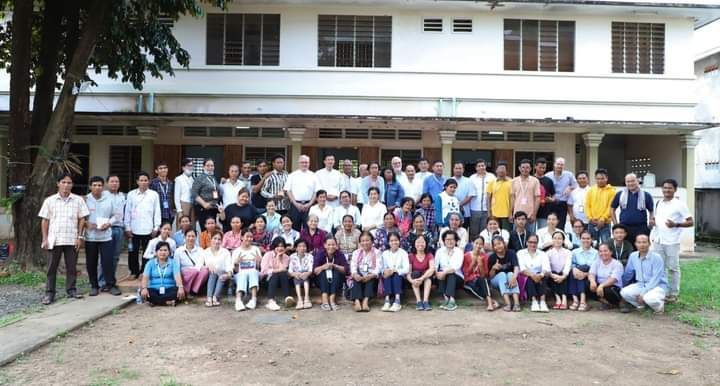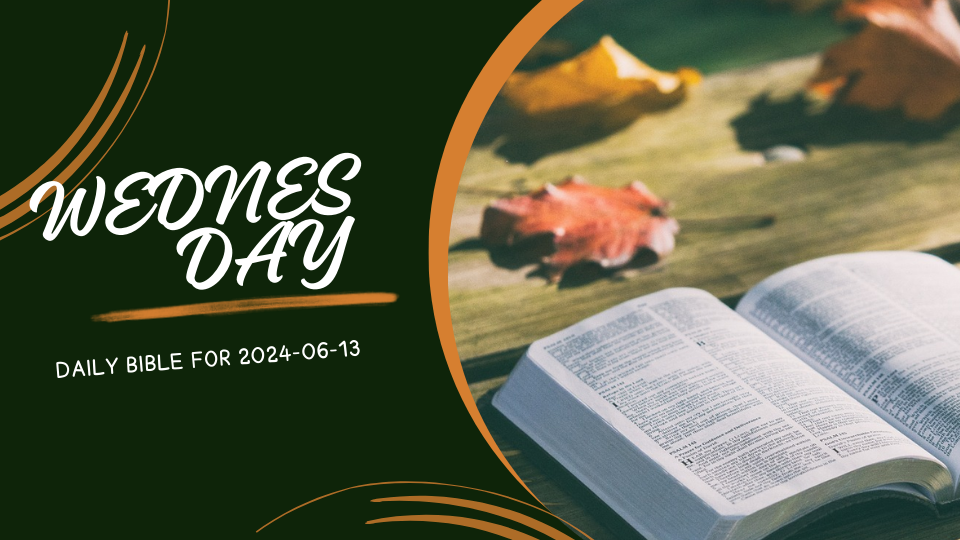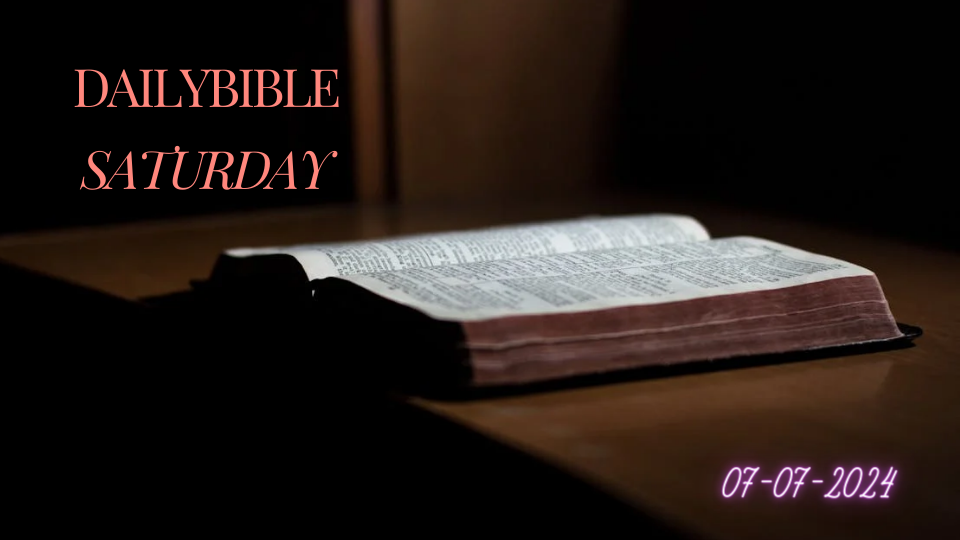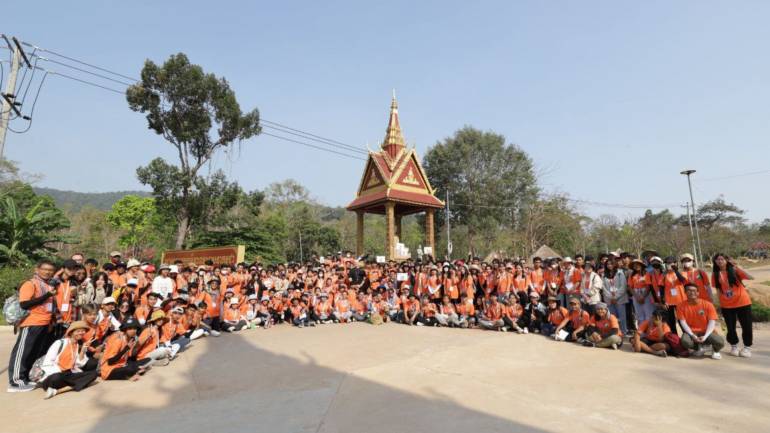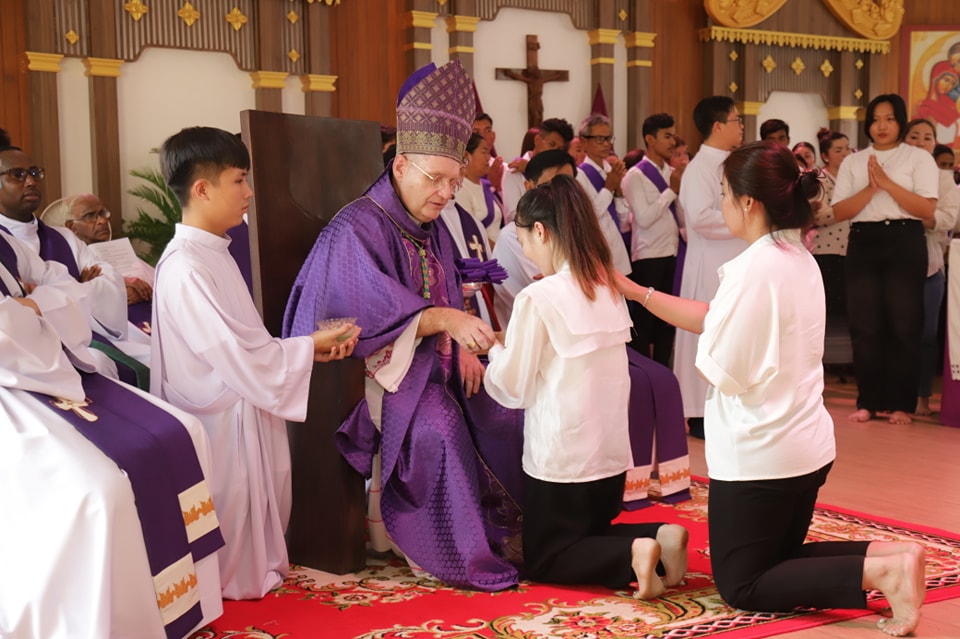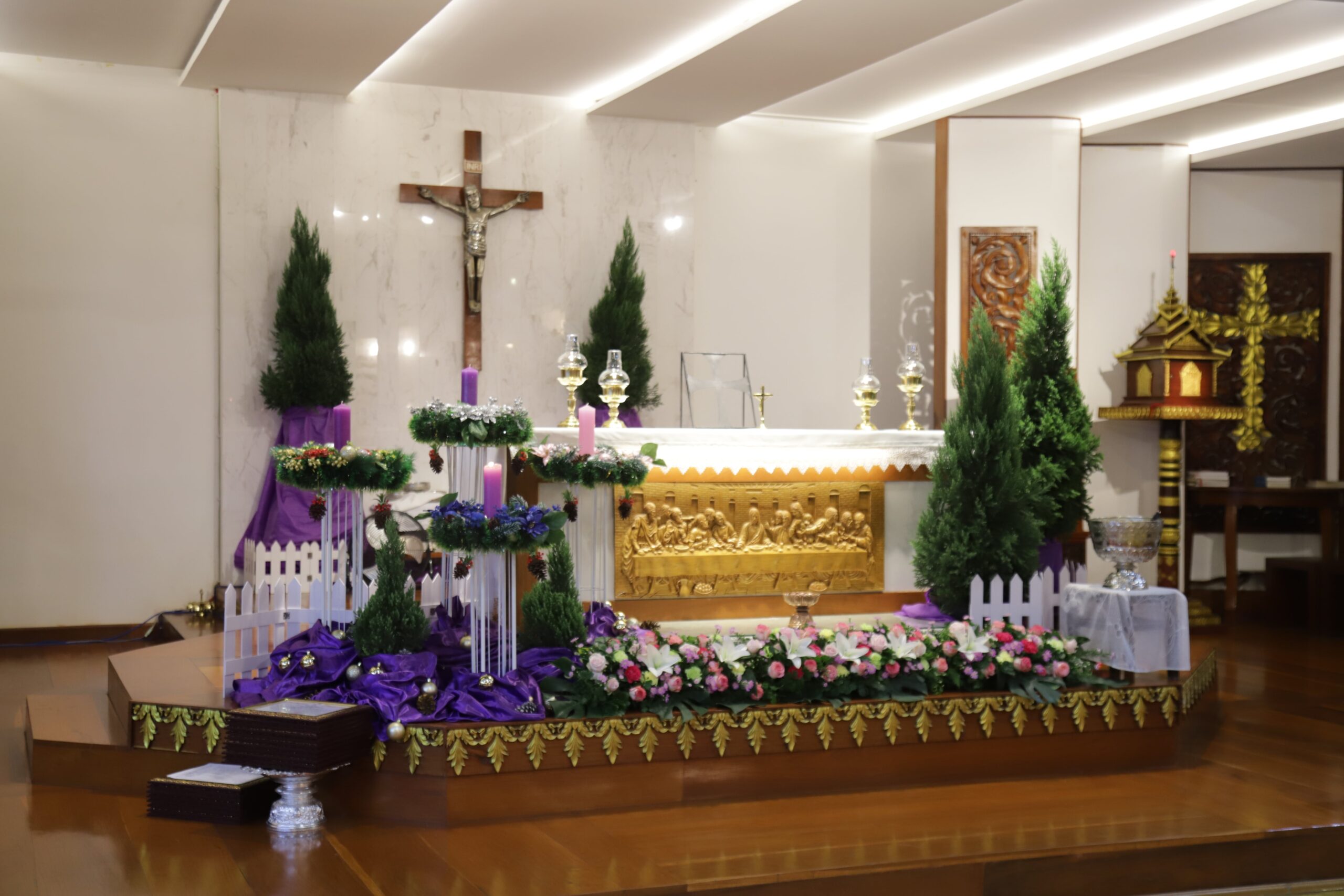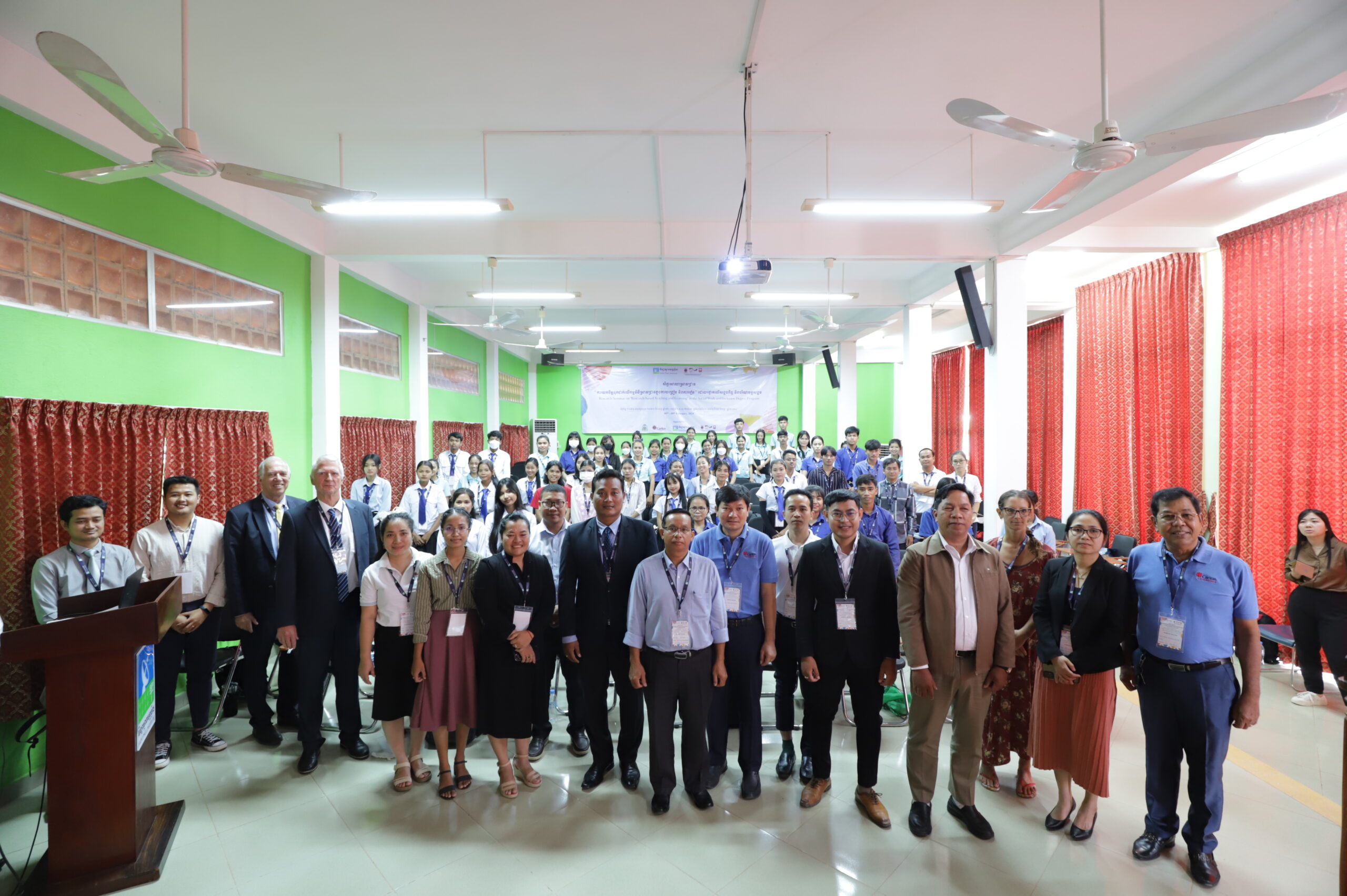source: radio veritas asia
Adult Catholics in the Apostolic Prefecture of Kampong Cham in Cambodia met together to reflect on the synod in the local church.
This synod is an opportunity for Catholics in Cambodia to reunite, discuss, and exchange ideas, and to reflect on what the Church is doing for people and society at large, said Father Gerald Vogin, MEP, an organizer.
“The life of the church is happy and peaceful because we know Jesus Christ as our Savior, so this is our source of happiness,” he added.
The program was held in Kampong Cham parish in Kampong Cham province from October 24-26 with the participation of about 80 parishioners from other parishes in the apostolic prefecture chaired by Msgr. Pierre Hangly Suon.
The two-day program helps Catholics to understand the history of the Kampong Cham prefecture, where the first proclamation of the gospel lasted 250 years. Many priests sacrificed their lives for the evangelization of the Cambodian people, explained Father Vogin.
The conference also considered how the church walked together as a community, proclaiming the gospel to others in Cambodia by Father Bruno Cosme.
Bora Phan, a trainer from Kampong Cham parish, addressed the church and the Bible with a focus on prayer, reading, and teamwork with God and being at the service of people.
Father Vogin urged Catholics to have strong faith in God. He said priests in the community must journey with them and take care of their culture so that they feel at home.
The apostolic prefecture of Kampong Cham covers eight provinces: Kampong Cham, Tbong Khmum, Prey Veng, Svay Rieng, Stung Treng, Ratanakkiri, Kratie, and Mondulkiri, and some provinces are inhabited by indigenous peoples.
Phan, a lay leader, said, “A Catholic must live with the Holy Spirit, encourage other Catholics, live with the body of Christ, live with love, live with the Word of God, and obey.”
He continued, “We can live and breathe, have nature, have a family, but all we get is from the blood of Christ because of the passion of Christ.”
Bora said Catholics must be faithful to God’s call, be generous and serve with sincerity.
Ms. Hai Seanglin, from the Kor-Anderk parish, said the program helped her better understand the priests’ struggle to preach the gospel to Catholics in Cambodia, a Buddhist-majority country.
“Even though he (a priest) knew where he was going and could die, he still went to preach the gospel to the people of Cambodia,” said Seanglin.
She added that she would be determined to read the Bible more to know God, to pray with Him, and participate in community activities.
Seanglin said that the work of charity is a sign of evangelism.
The young lady always goes to the village to visit the villagers, even though they are of a different faith from her.
“That time, they got to know who a Catholic is,” said Seanglin.
The Catholic Church in Cambodia was founded in the 16th century by the Portuguese priest, Gaspar da Cruz, a Dominican (1520–1570).
Despite the longevity of the community, the number of Catholics is not large, at about 20,000 among nearly 16 million of the Cambodian population, with 95% of Buddhist practicums. This is due to the countless war crises in the history of the country, especially during the Khmer Rouge regime (1975–1979).
Khmer Bishop Joseph Chhmar Salas (1937–1977), Vicar Apostolic of Phnom-Penh, and his companions, Khmer clergy and some Catholics, died along with nearly 2 million Cambodians.
At present, the Church in Cambodia has nearly 100 foreign missionaries but only 10 Cambodian priests, including one, Monsignor Pierre Hangly Soun, who was just elected by Pope Francis on July 15, 2022.



